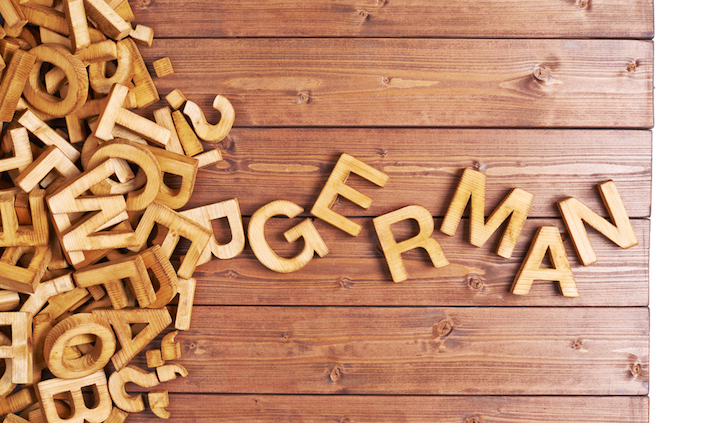Are you ready to live your life in a different language? You have studied your vocabulary, very basic stuff: how to ask for directions so you don’t get lost, how to order food so you don’t starve and how to be polite (“hello”, “please”, “thank you” and all that). You can survive with just that and improve from there, right?
That was what I thought before leaving for Germany, but I couldn’t be more wrong…

Be careful not to twist your tongue
Most people would agree that German is a difficult language, especially if your mother tongue is of Latin origin. Every new word is a surprise and you need more and more letters every time to write what you want to say. In case you didn’t know, Germans pronounce absolutely every letter in a word, for example: Schwarzwald (Black Forest). You are seeing it right, just two vowels and you pronounce all the consonants. I feel like I am in the Wheel of Fortune and I want to scream: “Can I buy a vowel?”
In spite of that, I felt very confident during my first days in Germany and I started a routine: I went to class, I went for a beer with my colleagues (of course, one of the first things I learnt was how to order Weizenbier) and I went shopping. There is where the drama happened.
I felt like eating chicken so I went and asked the nice Fleischereifachverkäuferin (it sounds really “badass”, but it’s as simple as the butcher shop assistant) to give me one Hähnchenbrust (chicken breast). I turned around to rearrange my shopping cart and when I looked again at her, she was putting a whole chicken in a bag. I was so not ready for that situation. I began scanning my mind trying to find the words for: “No, that is not what I want, sorry.” Instead of babbling or saying it in English, my polite manners took the best of me and I just said Danke.
There isn’t enough space in this room for the two of us, chicken!
I left the supermarket in a state of panic, but I didn’t want anyone to notice that I had made a mistake because I couldn’t pronounce correctly the little German I knew. So I went home and I did what everyone does in this kind of situation : I called my mum. She laughed at me for ten minutes, and then told me how to make soup with it. It was such good advice, but I didn’t have the means to cook it: no pot and no oven either.

That chicken had a very sad ending. I had to cut the meat from the breast with a tiny knife and twist the wings until they came off. The rest of the chicken ended up in the dumpster.
Goodbye chicken, I am very sorry for you.
Keep calm and use just three words in German!
After this little adventure, I started to get to know the German language better and learned words that could save me in every conversation I ever had for the rest of my stay. So, for your information, these are the words you will definitely need while you are in Germany:
- Ach so – When you get something that you didn’t understand before (or: “oh, right!”)
- Genau – This word works for any situation and is a way to express approval, even if you have no idea of what was said. Possible translation: “right”
- Alles klar – Expression to check and confirm that everything is all right. Possible translation: “it’s fine”
This means you can reply something like this to anything: “ahhhh, genau… achso! Alles klar. Ne, habe ich nicht verstanden.”
Ok, joking aside, you will need more words and you can get them here.


